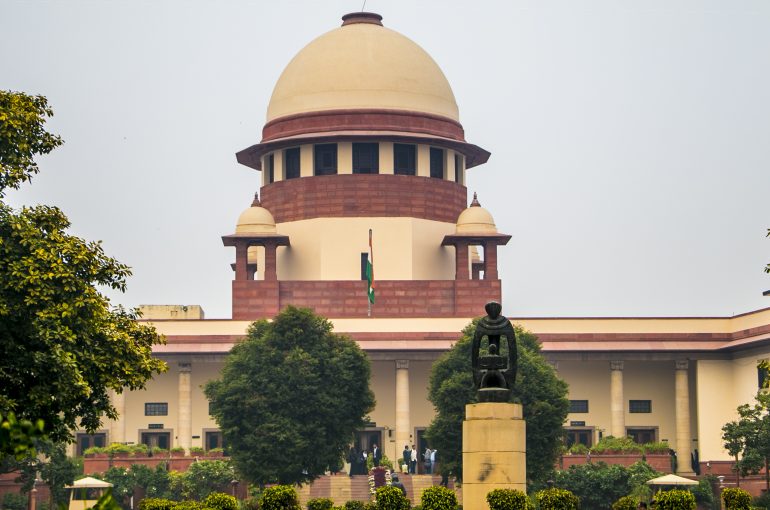SUPREME COURT: CRIMINAL PROCEEDINGS CANNOT BE USED TO SETTLE CIVIL DISPUTES

In the recent Judgment of S. N. Vijayalakshmi & Ors. versus State of Karnataka & Anr. (Special Leave Petition (Criminal) No. 8626 of 2024) date of Judgement- 31.07.2025) (Justices Sudhanshu Dhulia and Ahsanuddin Amanullah), the Supreme Court of India delivered a significant ruling in the realm of criminal jurisprudence, reaffirming that in the absence of any criminal intent, criminal proceedings arising out of a civil dispute cannot be allowed to proceed. The decision aims to curb the growing misuse of criminal law as a means of coercion in purely civil disputes.
The case arose from a dispute concerning a property agreement. The Complainant, who had entered into an agreement for sale with the Appellants (landowners), filed a civil suit for specific performance when the transaction did not materialize. Simultaneously, he also lodged a criminal complaint against the Appellants, invoking Sections 406 (criminal breach of trust) and 420 (cheating) of the Indian Penal Code.
The criminal complaint was filed on the ground that the landowners had allegedly cheated the complainant and violated the trust reposed in them. The Karnataka High Court, however, refused to quash the FIR. Aggrieved by the High Court’s refusal, the Appellants approached the Supreme Court seeking relief under Article 136 of the Constitution.
ISSUES BEFORE THE COURT
The Supreme Court was called upon to address the following key legal issues:
- Whether criminal proceedings can continue simultaneously with civil proceedings where the underlying dispute is civil in nature and no element of criminality is discernible.
- Whether the facts disclosed in the FIR constituted a prima facie case of criminal offence under Sections 406 and 420 IPC.
- Whether the continuance of criminal prosecution in the absence of criminal intent amounts to abuse of the process of law warranting the Court’s intervention under its inherent powers.
ANALYSIS OF THE JUDGMENT
The Judgment emphatically reiterated the principle that civil disputes must be adjudicated through civil remedies, and criminal proceedings should not be used as a weapon to pressure parties in contractual or property disputes.
- Civil Dispute Cloaked as Criminal Offence
The Court noted that the entire dispute stemmed from a contractual agreement regarding a property transaction, which fell squarely within the realm of civil law. While the Complainant alleged cheating and breach of trust, no criminal intent from the inception of the transaction could be established. This, the Court held, was crucial for sustaining any prosecution under Sections 406 or 420 IPC.
- Criminal Complaint Filed After Property Value Increased
A significant factor that weighed with the Court was the timing of the criminal complaint. The Complainant admitted that the FIR was lodged only after the market value of the property had significantly increased, suggesting an ulterior motive to pressurize the landowners into compliance with the agreement or gain an unfair advantage. The Court observed that criminal proceedings filed after the failure of a civil transaction, and motivated by change in market circumstances, lacked bona fide intent.
This principle formed the foundation of the Court’s reasoning in the present case, where the Complainant had already initiated civil proceedings and thereafter sought to give the dispute a criminal colour.
- Abuse of the Process of Court
The Bench observed that permitting both civil and criminal proceedings in such circumstances, in the absence of criminality, amounts to gross abuse of the judicial process. The Court stressed that this misuse burdens the criminal justice system and subjects the accused to unnecessary harassment. The inherent power of the Court under Section 482 of the Code of Criminal Procedure or Article 136 of the Constitution must be exercised to prevent such injustice.
The Court categorically held that in the absence of the element of criminality, if both civil and criminal cases are allowed to continue, it will definitely amount to abuse of the process of the Court, which the Courts have always tried to prevent. If such element is absent, the prosecution in question would have to be quashed.
CONCLUSION
This ruling is yet another affirmation of the Supreme Court’s consistent stand that criminal law must not be used to settle scores in civil disputes. By quashing the FIR and setting aside the Karnataka High Court’s decision, the Court protected the rights of the Appellants from being dragged into unjustified criminal prosecution.
The Judgment sends a clear signal to litigants and law enforcement alike: where civil remedies are being pursued and no prima facie case of criminality exists, invoking criminal law is impermissible. Such attempts not only overburden the judiciary but also violate the liberty of individuals through unjust prosecutions.
In conclusion, this decision strikes a necessary balance between civil justice and criminal law enforcement, and serves as a vital safeguard against the abuse of legal process. It reiterates the constitutional ethos that liberty cannot be curtailed merely by giving civil disputes a criminal veneer.
SARTHAK KALRA
Senior Legal Associate
The Indian Lawyer & Allied Services
Please log onto our YouTube channel, The Indian Lawyer Legal Tips, to learn about various aspects of the law. Our latest Video, titled- “What Is Impeachment? Legal Process to Remove Judges and Officials in India| Advocate Sushila Ram Varma” can be viewed at the link below:
https://www.youtube.com/watch?v=KnZ4dWzjPns





































Leave a Reply